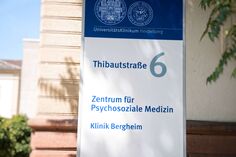H(2)-histamine antagonist (famotidine) induced adverse CNS reactions with long-standing secondary mania and epileptic seizures.
von Einsiedel RW, Roesch-Ely D, Diebold K, Sartor K, Mundt C, Bergemann N.
We report on the case of a 65-year-old female who was treated for one week with famotidine, a reversible H(2)-histamine antagonist, due to gastric pain. Shortly after treatment began, she presented manic symptoms and developed two generalized seizures, after which famotidine was discontinued. Manic symptoms were present for three months; intermittent treatment with both carbamazepine and antipsychotic medication was necessary before her mental status was completely restored. While cimetidine and ranitidine are known to cause secondary mania, this symptom has not been described for famotidine. CNS side effects are usually short-lived and respond to discontinuation of the drug, which was not the case in our patient. During a follow-up period that has so far lasted four years, the patient has been stable without any psychiatric medication. Adjusting the maintenance dosage of H(2)-histamine antagonists has been recommended in elderly patients since age-related reduction in renal plasma flow, glomerular filtration rate and renal tubular function may be present, which can in turn elevate histamine levels in plasma and cerebrospinal fluid. Our patient, however, had normal renal function and was free of organic or psychiatric diseases, so what pathogenetic mechanism led to the remarkably long standing manic syndrome after a relatively short course of famotidine remained unknown; famotidine seems to cause the same spectrum of adverse central nervous system (CNS) reactions as other H(2)-histamine antagonists.




